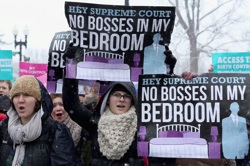Legal / juridical person
The granting of legal personality to a nation's Catholic church is sometimes claimed to be necessary for religious freedom, but the example of the United States disproves this. However, wherever possible concordats insist on this.
Legal or juridical personality is a legal fiction originally invented to ensure that a group (for example of mediaeval monks) was held accountable for its debts. This was the beginning of corporate law.
In the eyes of the law, a person can be either an individual, like you or me, or a group of individuals called a corporation. This legal construct gives a group of natural persons the right to act as if it were an individual for at least five purposes: the right to sue and be sued, the right to a common treasury (including the right to own property), the right to sign contracts, the right to hire employees and the right to make by-laws (self-governance). Individual jurisdictions may add other rights.
Legal personality can be applied to the Catholic Church in three ways. It can involve recognition of the legal personality of the Holy See in international law, of the national Catholic church in domestic law and of its social institutions, such as Catholic schools and hospitals. The first one, international recognition, is widely granted. That's because the Holy See is not only the government of the Catholic Church, but also of the Vatican City State. Therefore, countries which have diplomatic relations with the Vatican State end up recognising the Church at an international level, as well.
At the national level recognition of legal personality involves
the necessary provision by the State of a legal personality status, which religious or belief communities need in order to be able to take collective legal actions. Obtaining such a legal status typically requires undergoing some administrative “recognition procedures”, which should be designed so as not to pose undue obstacles, either de jure or de facto, to the accessibility of the required legal personality status. [1]
Although the fiction of legal personality was originally invented to hold corporations accountable for their debts, in the case of the Roman Catholic Church, this has not proven particularly constraining. The Church has so many different organs, each with its own legal personality, that it can manage to assign liability for debts to low-level ones (dioceses or even parishes) which can then declare bankruptcy and leave higher-level ones with huge assets completely untouched.
The concept of corporate personhood has been developed most fully in the US.
[There] since the 1950s, however, the treatment of corporations as people has expanded beyond its original economic logic.[...] The danger is not only that corporations can act at the expense of society, but also that the people who control them can act at the expense of their own shareholders, employees and customers. [2]
When this happens, these “group rights” can effectively limit the human rights of individuals — a cruel irony, since human rights were originally meant to help protect individuals from such groups.
 This was made clear in 2014 when the US Supreme Court ruled that ruling that some companies can refuse, on religious grounds, to offer birth-control coverage to their workers. This asserted the remarkable “right” of a for-profit corporation to act according to its "conscience". As a White House spokesman said, “there is a group of women [...] who no longer have access to free contraceptive coverage simply because of some religious views that are held, not by them, but by their bosses.” [3]
This was made clear in 2014 when the US Supreme Court ruled that ruling that some companies can refuse, on religious grounds, to offer birth-control coverage to their workers. This asserted the remarkable “right” of a for-profit corporation to act according to its "conscience". As a White House spokesman said, “there is a group of women [...] who no longer have access to free contraceptive coverage simply because of some religious views that are held, not by them, but by their bosses.” [3]
Notes
1. Report of the Special Rapporteur on freedom of religion or belief, Heiner Bielefeldt, Human Rights Council, 22 December 2011. http://www.ohchr.org/Documents/HRBodies/HRCouncil/RegularSession/Session19/A-HRC-19-60_en.pdf
2. Binyamin Appelbaum, "What the Hobby Lobby Ruling Means for America", New York Times, 2014-07-22. http://www.nytimes.com/2014/07/27/magazine/what-the-hobby-lobby-ruling-means-for-america.html
3. Hobby Lobby ruling draws renewed commitment from Congress, CNA, 2014-07-01 http://www.catholicnewsagency.com/news/hobby-lobby-ruling-draws-renewed-commitment-from-congress-76488/
“Obamacare Rebuffed by High Court in Contraception Ruling”, Bloomberg News, 2014-06-30 http://www.bloomberg.com/news/2014-06-30/obamacare-rebuffed-by-high-court-in-contraception-ruling.html
“Prelates Say Religious Freedom Extends to People Who Run Businesses”, Zenit, 2014-01-28 http://www.zenit.org/en/articles/bishops-conference-files-amicus-brief-with-hobby-lobby







